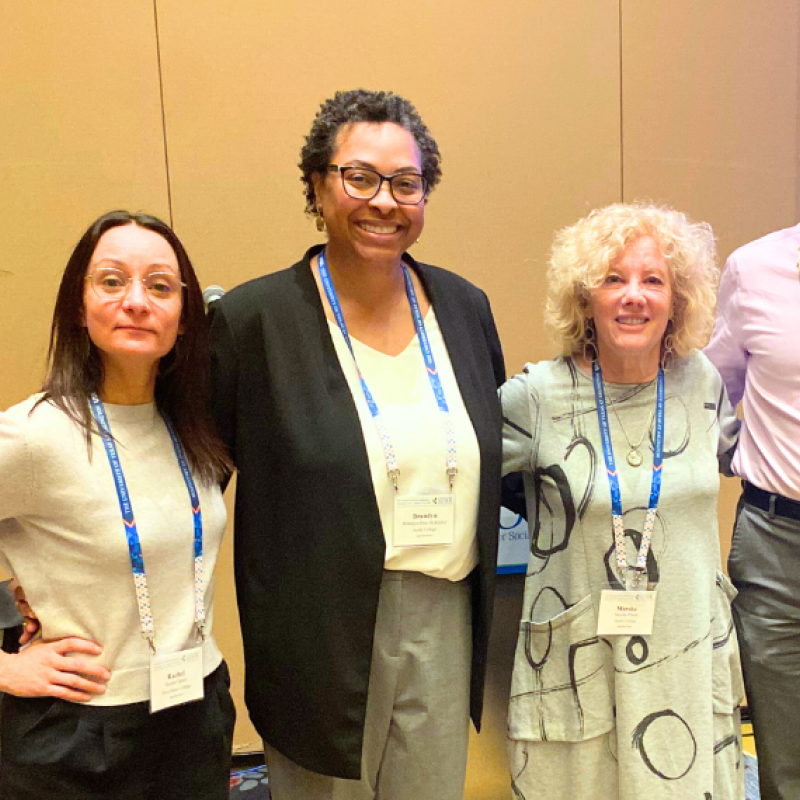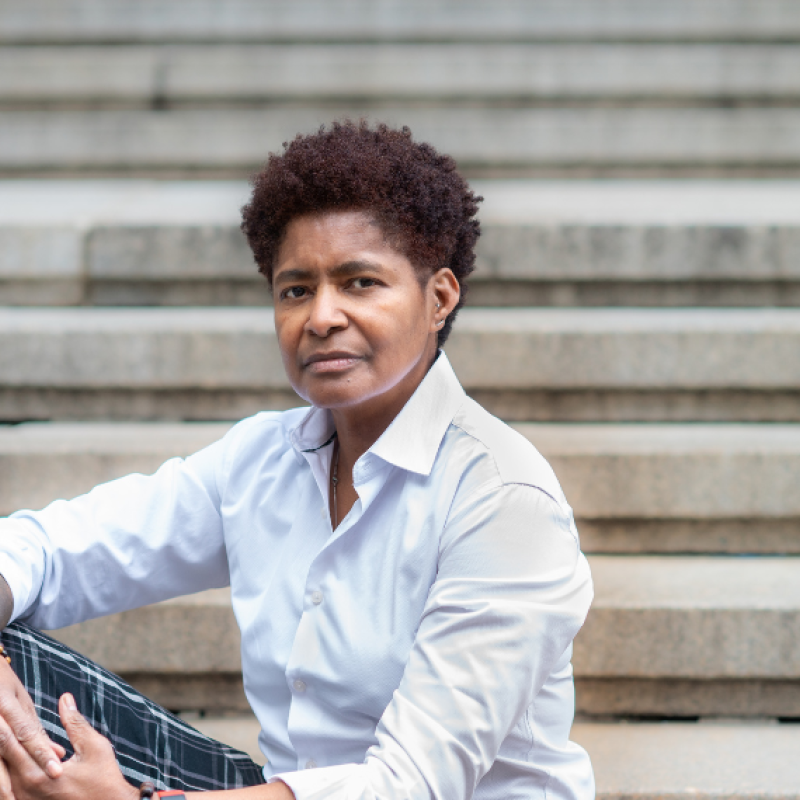
JD Fuller, M.S.W. ‘99, LCSW, doesn’t sleep much. She wakes up early to commute to her day job at a prep school in New York City and then spends her evenings seeing private clients on telehealth into the West Coast evening. Such is the life of a polymath social worker, whose work spans the spectrum of both micro and macro practice. She has dedicated her career to understanding the depth of global anti-Blackness and the colonization of mental health.
NAME: JD Fuller
DEGREE: M.S.W. ’99
LOCATION: New York City
“I usually start my day at about 6 a.m. I ride a Citi Bike to work” – Léman Manhattan Preparatory School in lower Manhattan.
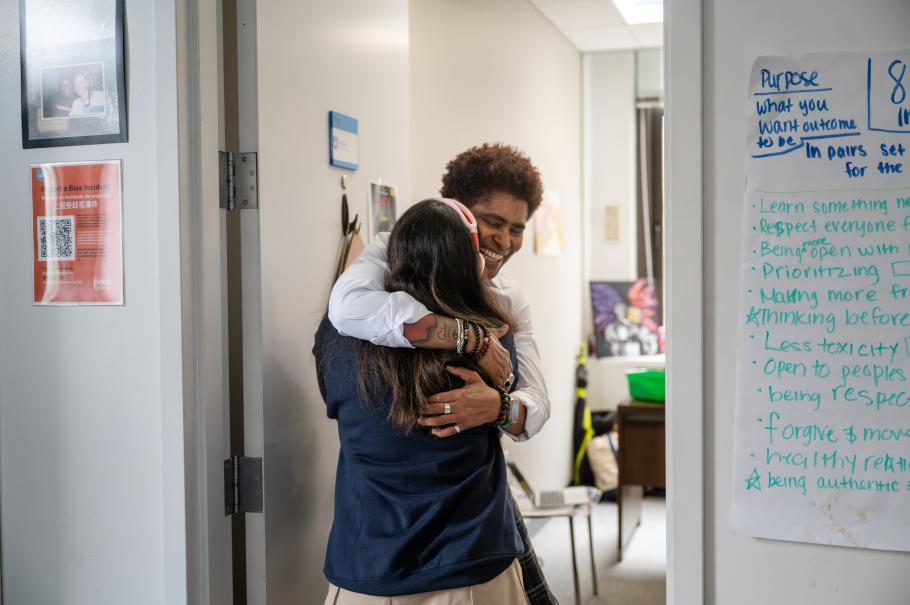
“I deal with teenagers, support the lower school children and staff at any given moment. I deal with everything from ‘my friend talked about me’ to self harm and, unfortunately, suicidal ideation,” she said. “I created the Black Student Union (BSU) in the middle school, and I co-facilitate the high school’s [BSU] and also a mentoring group for boys. These are supportive spaces for kids in the Black diaspora to feel empowered. They get to process what it’s like to be educated in a rigorous white space and to figure it out collaboratively.” She also manages the mental health needs of the school’s boarding students and runs parenting groups.
After school ends, JD’s day has just begun. “I walk another few miles to come back to the house where I see private practice clients” via telehealth, often until 10 p.m. to accommodate West Coast evening hours (JD lived in California for 20 years before moving back to the east coast early in the COVID-19 pandemic). She also coaches licensed clinicians, locally and internationally, seeking to combat anti-Black racism in their clinical practice, and she teaches an annual course on decolonizing mental health at the New Center for Psychoanalysis, based in Los Angeles.
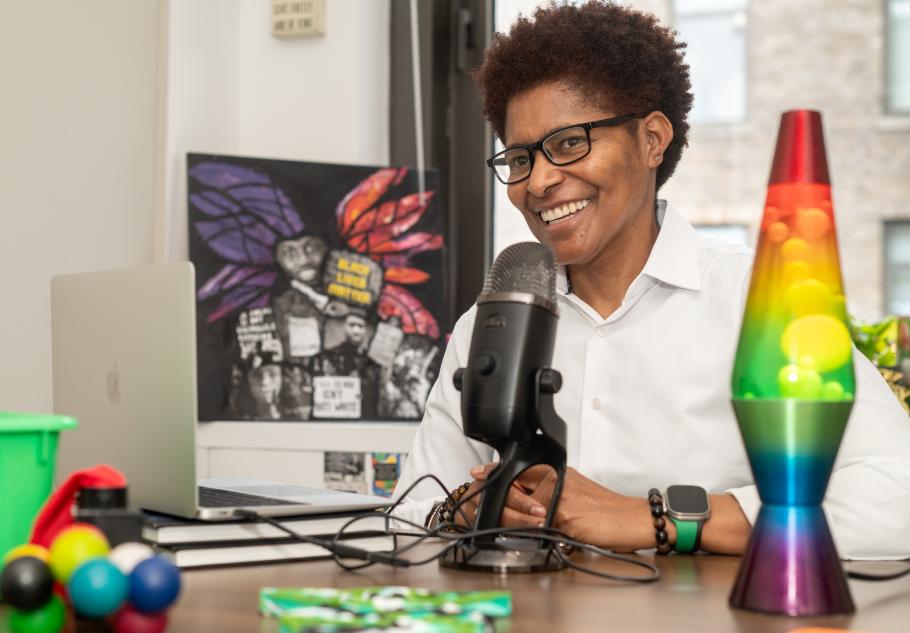
Additionally, JD started a podcast called “Change the Narrative” in 2021, giving a weekly platform to people with underrepresented voices in the antiracism space. Across nearly 150 episodes, she says that the greatest moment was getting to share space with one of her idols in this work, Resmaa Menakem, psychotherapist and author of My Grandmother’s Hands, a book on healing racialized trauma. Another exciting interview of the many was current Illinois congressional candidate Qasim Rashid.
“This whole process of doing this podcast – that I paid for myself – was a work of passion,” JD said. “It was a bigger audience than in a classroom, an opportunity to have different types of people hear these conversations.”
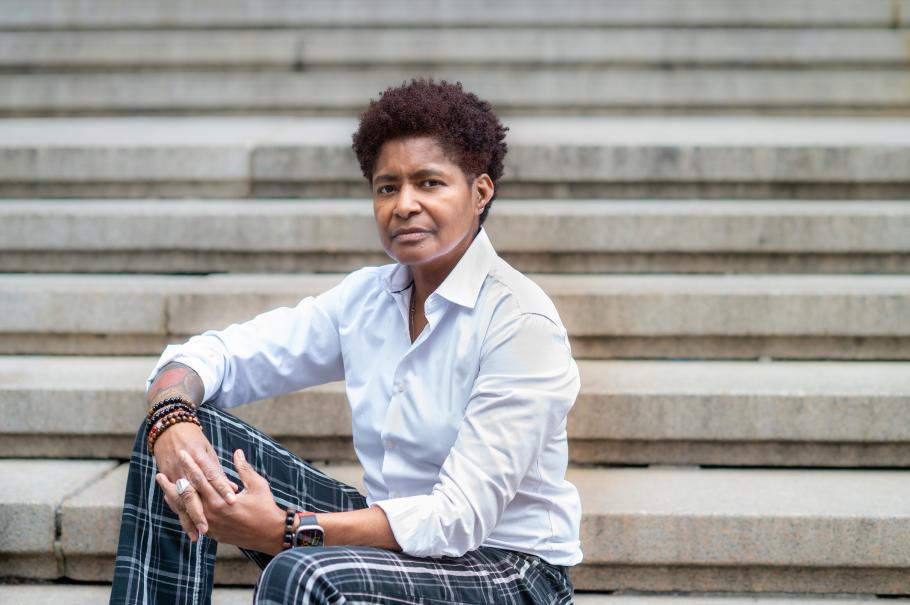
JD’s commitment to deconstructing anti-Black racism grew out of lived experience, early experiences in social work, and her time at Smith School for Social Work. She grew up in Norwalk, Connecticut, a working class, diverse city sandwiched within some of the wealthiest and whitest towns in the nation. Relatives helped run an inner-city community center there, planting her roots in the profession from the start. Eventually, those roots grew into experience working in agencies, directing a teen youth center in Greenwich, Connecticut, and finally finishing her education at SSW. JD’s abilities were overlooked throughout her schooling, so getting to this point took great effort.
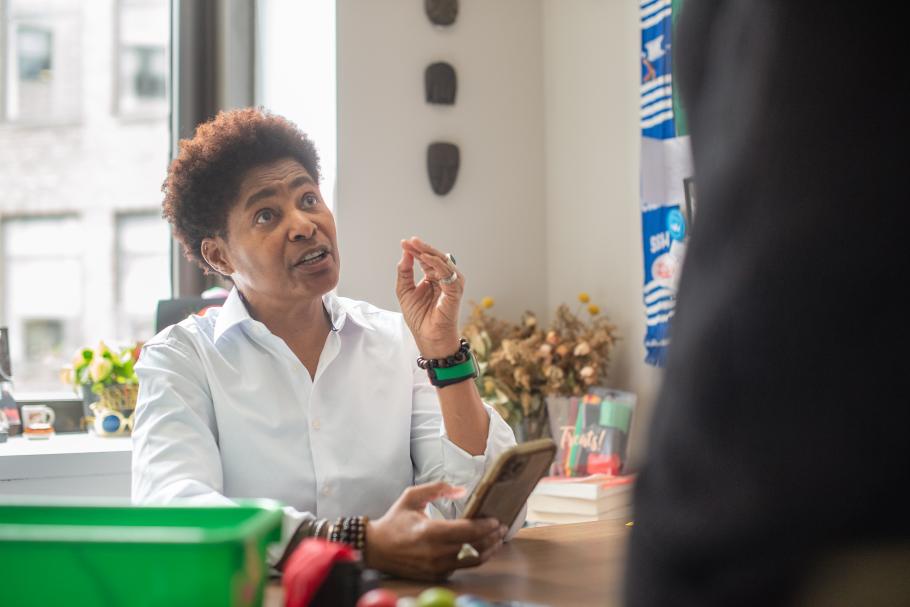
“I had to finish my education, because I didn’t like how people were treating me,” she said. JD earned her degree in the SUNY system and then applied to Smith, where she flourished, researching racial identity development.
Years later, through post-M.S.W. work in a grueling child welfare job in Southern California and then transitioning into educational and media work, JD has found her voice, and she intends to continue using it.
“I want to get back to teaching as a way of sharing the lessons that I continue to learn,” she said. “I'm so sick of the white silence and the silence in the mental health field of what goes on in the world because people believe social work and therapy are neutral, when they’re not.”

